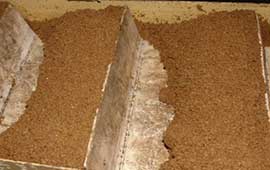Stillage is a waste product from the production of ethyl alcohol.
Alcohol stillage is a light yellow liquid with an unpleasant odor and sourness. It contains up to 6% of dry substances, and from each liter of alcohol, up to 13 liters of vinasse is obtained directly. Like many industrial waste, stillage is used for a variety of purposes – from fertilization to cooking.
What you need to know about the processing of alcohol stillage
The processing of alcohol stillage takes an important place in the industry, since after the production of alcohol, this substance is even more than the ether-aldehyde fraction and fusel oil. Therefore, manufacturers are faced with the task of effectively using this substance. Previously, many factories simply dumped bard, or tried to transport it to livestock enterprises. And if in the first case the environment was polluted, then in the second the transportation turned out to be economically unprofitable, which created a problem for production. In addition, in a liquid consistency, stillage sour very quickly.
At the moment, there are several ways to process vinasse: production of dry vinasse, production of feed yeast and production of biogas.
In biogas production, stillage is contained in special containers where anaerobic fermentation takes place. After that, the methane is purified and used in industry. For the production of dry yeast, vinasse is separated in centrifuges or filters, which makes it possible to build up biomass, which is then sent to thermolysis and drying.
On the territory of the CIS, vinasse is mainly processed to obtain dry vinasse.
In which EU countries is alcohol stillage processed?
The process of processing this substance is quite labor-intensive and resource-intensive, and to obtain, for example, feed yeast or biogas, serious capacities are needed, which are often only available in European countries. In the EU, this substance is mainly used to produce dry vinasse. Already in 2006, the volume of stillage processing amounted to more than 2 million tons. It should be understood that the prices for this product directly depend on the prices for oil and gas, as well as on the cost of grain. This product is processed by factories in Germany and Austria, which produce biogas from alcohol stillage. In addition, given the rise in prices for natural gas, this type of fuel is currently a higher priority for Europe, and therefore the supply of bard to the EU will only increase. Local alcohol producers should strictly adhere to all transport and product quality requirements so that European buyers can appreciate the local product. To do this, manufacturers must correctly draw up documentation and follow the import requirements, which are updated in the EU every year.






